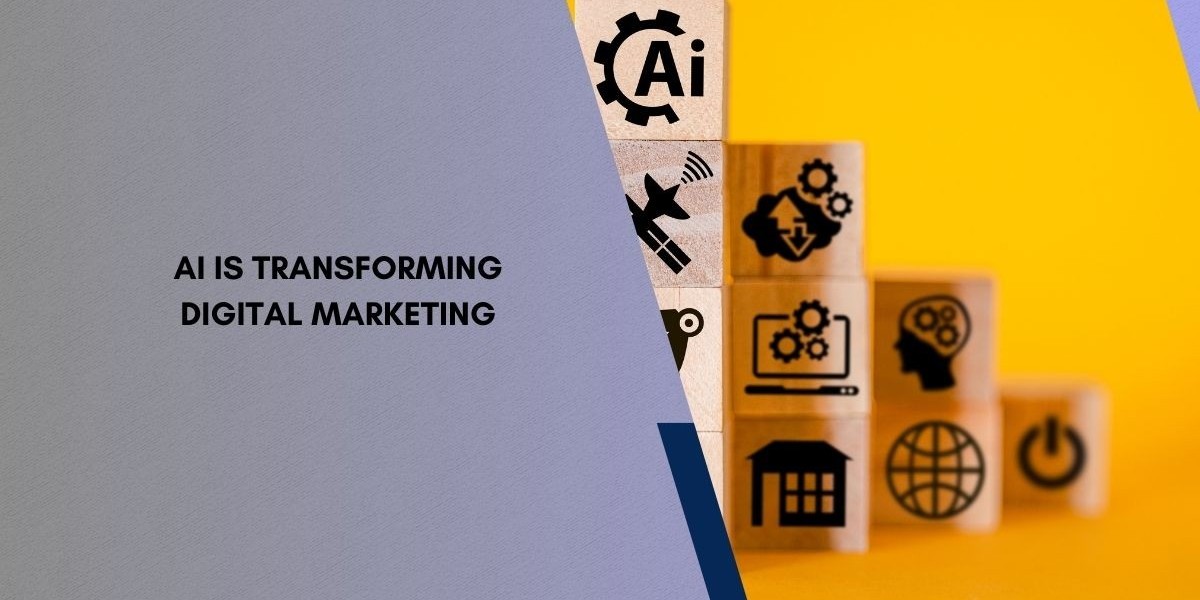Artificial Intelligence (AI) is no longer just a buzzword—it’s the driving force behind a new era of digital marketing. In 2025, AI is helping brands think smarter, act faster, and deliver more personalized experiences than ever before.
But here’s the truth: AI isn’t here to take over marketers’ jobs. It’s here to make them better at what they already do—create impactful campaigns, analyze data efficiently, and connect with audiences on a deeper level.
Why AI Matters in Marketing Today
AI is deeply integrated into the tools marketers use daily—from smart ad platforms to automated design tools. Whether it's Meta’s Advantage+ campaigns, Google’s Performance Max, or AI-powered creative suites, these technologies are now essential for staying competitive in the digital space.
Top Areas Where AI Is Making a Difference
1. Faster and Smarter Content Creation
AI tools like ChatGPT, Midjourney, and Runway have become digital marketing staples. Teams can now craft engaging content, generate visuals, and build campaigns in record time.
2. Hyper-Personalized Experiences
AI helps brands understand user behavior and tailor content accordingly. From product suggestions to customized emails, personalization boosts both engagement and conversions.
3. Insight-Driven Strategies
Real-time analytics platforms like GWI Spark help marketers gain deep audience insights quickly—no manual research required. This leads to data-driven decision-making that improves ROI.
What AI Enables for Marketing Teams
AI empowers teams to:
? Launch campaigns quickly
? Improve targeting and segmentation
? Forecast trends with predictive analytics
⏱️ Eliminate repetitive manual work
? Personalize customer journeys at scale
The result? More time to focus on creativity and strategy.
Popular AI Tools in Marketing
Some AI tools making a real impact in 2025 include:
GWI Spark – Instant consumer insights
ChatGPT – Copywriting and ideation
Surfer SEO / Clearscope – Optimized content planning
Runway / Midjourney – AI-generated media and videos
Google & Meta AI – Ad automation and optimization
Conversational AI – Intelligent chatbots for better support
Responsible Use of AI: Ethics and Challenges
Despite its benefits, AI comes with responsibilities:
Bias in Algorithms – Tools must be trained on diverse, unbiased data.
Transparency – Clearly indicate when content is AI-generated.
Brand Safety – Regular checks to avoid misinformation or tone misalignment.
Compliance – Stay updated on AI-related regulations (e.g., EU AI Act).
A balanced approach ensures ethical AI usage that protects brand credibility.
The Future: Human Creativity + AI Intelligence
We’re heading into an era where humans and machines co-create. Here’s how that might look:
AI detects behavior changes in real-time.
Your team crafts creatives based on those insights.
Campaigns adapt and optimize on their own.
This synergy leads to predictive marketing—where you connect with customers before they even act.
Choosing the Right AI Stack
When evaluating tools, ask:
Will it integrate with my CRM or analytics platform?
Can it scale with my team?
Is the data source transparent?
Does it simplify or complicate my workflow?
Start with what fits your current needs and expand gradually.
Upskilling for an AI-First Future
The most valuable marketers are those who understand how to use AI smartly. Forward-thinking brands are already:
Hosting in-house AI workshops
Training teams on prompt writing
Building cross-functional knowledge
AI isn’t a replacement for creativity—it’s a catalyst for innovation.
Real-World Applications of AI in Industries
Retail: Dynamic pricing, recommendation engines
Finance: Fraud detection and client personalization
FMCG: Demand forecasting and packaging innovation
Entertainment: Smart content distribution and campaign targeting
AI adapts to any industry, improving both execution speed and audience experience.
Marketing Smarter in 2025
AI isn’t a threat—it’s an opportunity. Marketers can now focus more on storytelling, strategy, and creativity, while AI handles the behind-the-scenes heavy lifting.
Start small, explore the tools, and evolve as you grow. The future of marketing is not about man vs. machine—it’s about man with machine.





